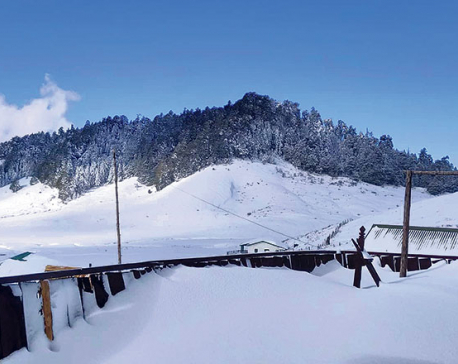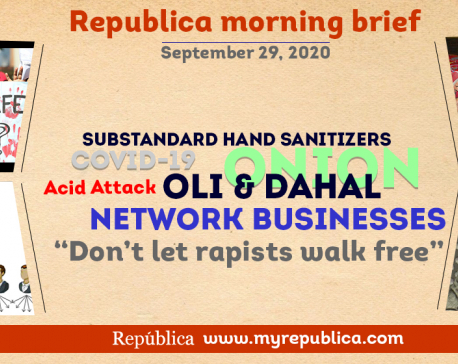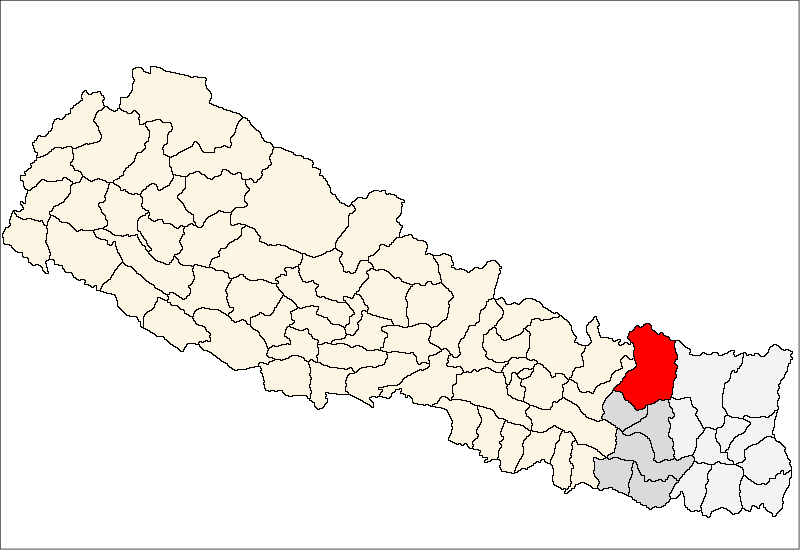
OR
Concerns arise over dubious networking business ‘Indian Vestige’ in Western Nepal
Published On: September 4, 2023 03:15 PM NPT By: Nirmal Ghimire

BARDIYA, Sep 4: Reports have surfaced highlighting the exploitation of thousands of Nepali citizens in western Nepal through an illicit networking business called "Indian Vestige." This development comes after a series of previous scams, including Unity International, Orions, and Winwin, which swindled substantial sums from the public through illegal networking ventures.
It has come to light that unsuspecting Nepalis in rural areas are falling victim to deceptive schemes where they are recruited as agents and promised commissions for selling medicines and other products at prices three times higher than the market rate. Agents openly conduct business in small markets, including Gulriya and Kailali in Bardiya, by procuring medicinal materials from Nepalgunj, a major city in the western region.
The Vestige network seems to be implicated in value-added tax (VAT) evasion, as agents fail to issue VAT invoices when selling drugs to the public at exorbitant prices, despite VAT being deducted when purchasing Vestige goods from agents. To become a Vestige agent, individuals must make an initial payment of at least NPR 6,000. As Vestige's business expands, other networks such as Uturn and Dimax have also ventured into networking.
Previous fraudulent networking operations like Winwin International and Unity International gained notoriety after being exposed. Officials, including then Chief District Officer of Bardiya, Ram Bahadur Kurumbang, and Police Chief Rajeshnath Bastola, took action against seven gang members and alerted over 500 Nepali members involved in Orions networking business in Bardiya, Banke, and Dang.
Most Vestige agents are local businesspersons who act as intermediaries. These businessmen admit that their sales distribution for other companies' products has suffered due to the allure of commissions earned from selling questionable-quality medicinal products. Accurate data on the number of Vestige agents and the extent of their network is unavailable.
In the past, Vestige enlisted residents of impoverished slums to peddle medicines, akin to offering a low-cost drug insurance policy. An anonymous businessman revealed, "My wife was also made an agent to sell medicine," and alleged that Indians were employing Nepali agents to defraud their fellow Nepalis under the guise of Vestige Networking.
Vestige manufactures medicinal products in Haridwar, Uttarakhand, India, and exports them to Nepal via Delhi. Agents deceive people into believing that the drugs are manufactured in Nepal's Dhading district. As Vestige began compensating agents for selling medicines and other products to the general population, the secretive network expanded into impoverished rural settlements. It has been disclosed that Vestige agents often have affiliations with political parties.
A case that exemplifies the risks associated with Vestige is that of 45-year-old Sitaram Godia from Gulariya Municipality-3, who has been suffering from elephantiasis for 30 years. Godia's condition deteriorated after using three types of drugs purchased from a Vestige agent for NPR 18,000. Despite the agent's assurance of a cure, Godia experienced pain in his legs and was subsequently admitted to Bardiya Hospital.
Police detained three individuals posing as doctors who provided medicine to Godia and later released them after questioning. Investigations revealed that they had supplied ordinary medicines at inflated prices. Despite the Nepali government's ban on networking businesses, gangs continue to extort money from the public. Reports suggest that these gangs have successfully promoted networking businesses in over a dozen villages along the India-Nepal border in the western region and have been training Nepali youths, often accommodating them in well-known hotels.
You May Like This

Snowfall affects normal life in Dolpa
DOLPA, Nov 16: Snowfall coupled with rain in Dolpa district since today morning has severely affected normal life. ... Read More...

Republica Morning Brief : Sept 29
Minister for Foreign Affairs Pradeep Gyawali on Monday said the risk of novel coronavirus disease (COVID-19) in the country is... Read More...

In Jumla, menstruating women are forced to stay in cowsheds
JUMLA, Jan 9: Chhau sheds (menstruation hut) are being dismantled in western Nepal following strict directive from the government to... Read More...




Just In
- NEA Provincial Office initiates contract termination process with six companies
- Nepal's ready-made garment exports soar to over 9 billion rupees
- Vote count update: UML candidate continues to maintain lead in Bajhang
- Govt to provide up to Rs 500,000 for building houses affected by natural calamities
- China announces implementation of free visa for Nepali citizens
- NEPSE gains 14.33 points, while daily turnover inclines to Rs 2.68 billion
- Tourists suffer after flight disruption due to adverse weather in Solukhumbu district
- Vote count update: NC maintains lead in Ilam-2













Leave A Comment